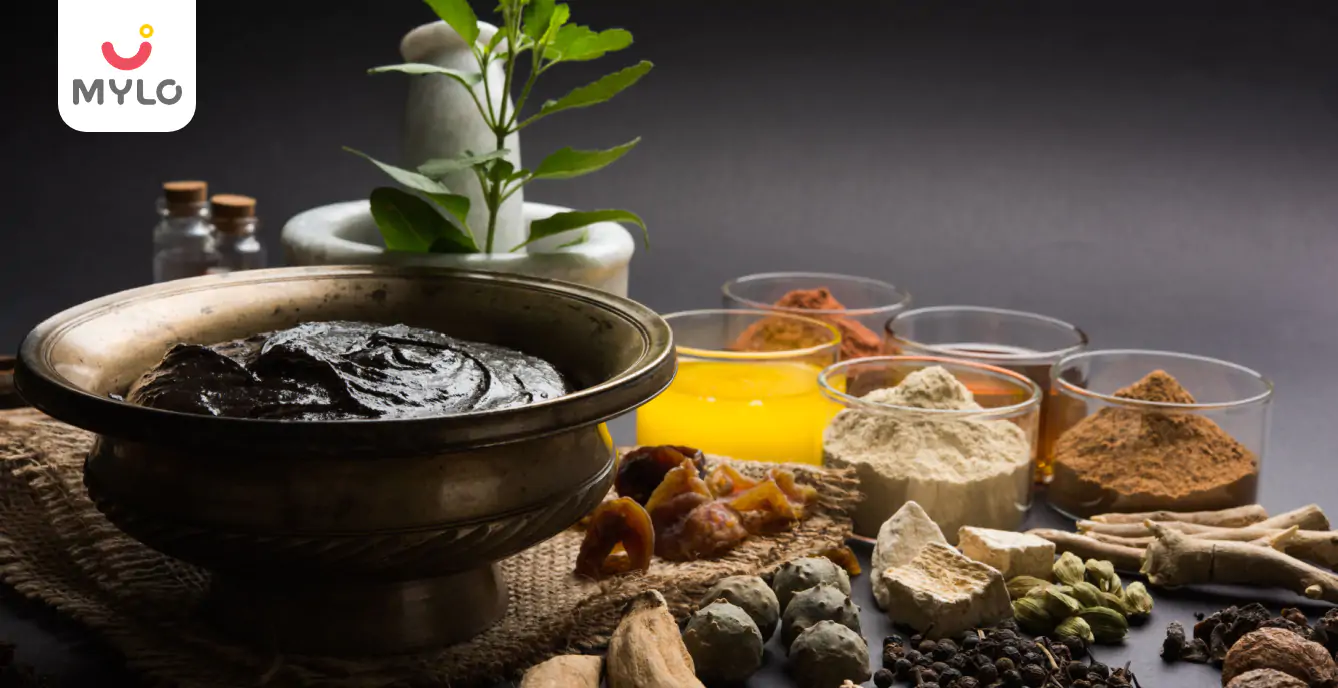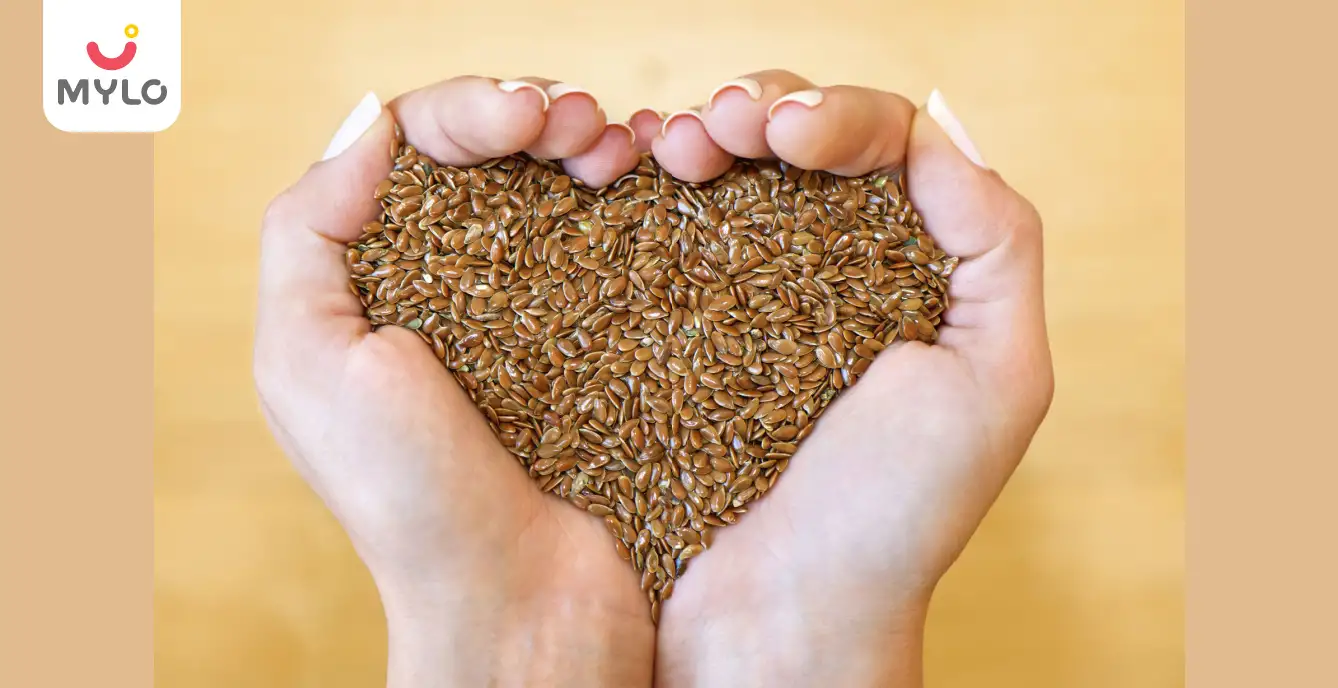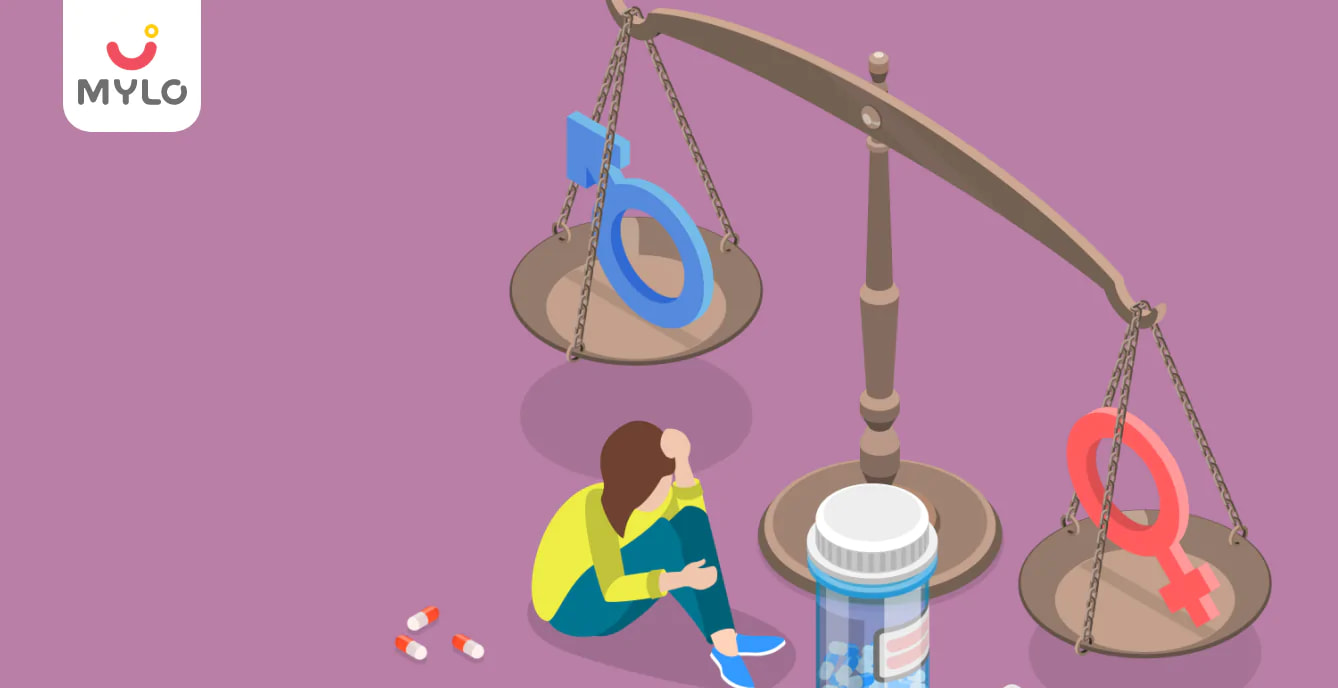In this Article
Hormones
How to Treat Hormonal Imbalance to Get Pregnant: Everything You Need to Know
Updated on 18 September 2023



Medically Reviewed by
Dr. Shruti Tanwar
C-section & gynae problems - MBBS| MS (OBS & Gynae)
View Profile

The wait to see those two pink lines pop up on a pregnancy test can feel endless for some women. And not knowing what’s standing in your way to pregnancy can be heartbreaking. One of the most common reasons for fertility issues is hormonal imbalance in men and women. In this article, we will understand how to treat hormonal imbalance to get pregnant.
But before we understand how to cure hormonal imbalance in females and males, it’s important to understand its relation to fertility and the symptoms to identify hormonal imbalance.
How Does Hormonal Imbalance Affect Fertility?
Hormonal imbalances can significantly impact fertility in both men and women. These imbalances occur when the body produces too little, too much, or out-of-sync hormones. The hypothalamus regulates hormone levels in the body, and the pituitary gland produces necessary hormones such as LH and FSH, which regulate progesterone, thyroid hormones, prolactin, testosterone and sperm production, respectively.
In women, an imbalance of luteinizing hormone (LH) can cause irregular periods, lack of ovulation, or a shorter window for egg fertilization. On the other hand, hormonal imbalances in men can lead to fertility issues by affecting testosterone and sperm production. Thus, it is crucial to maintain hormone balance to ensure optimal fertility.
What are the Symptoms of Hormonal Imbalance in Women and Men?
Hormonal imbalance can often go undiagnosed until a person begins to have trouble getting pregnant or experiences a disruption in their day-to-day life. But there are certain symptoms that our body produces that can help us identify an imbalance in hormones.
Symptoms of Hormonal Imbalance in Women
Women are likely to observe the following symptoms when experiencing hormonal imbalance:
- Irregular or absent periods
- Spotting in between periods
- Heavy or painful periods
- Increased hair growth on face, neck, chest and back
- Unexplained weight gain
- Diarrhea or constipation
Symptoms of Hormonal Imbalance in Men
Men with hormonal imbalance may experience some of the following symptoms:
- Erectile dysfunction
- Low sperm count
- Reduced hair growth on body
- Hair thinning or male pattern hair loss
- Overdevelopment of breast tissue
- Breast tenderness
If you have been struggling to conceive and observe the following symptoms, it’s important to consult a reproductive endocrinologist.
How to Treat Hormonal Imbalance to Get Pregnant?
It's important to treat hormonal imbalance, regardless of whether a person is trying to conceive or not, as it is typically treatable. Treatment options for hormonal imbalance and pregnancy can include medications, Ayurvedic herbs, supplements and lifestyle changes.
Ayurvedic Herbs
Here are some herbs that can help improve fertility and hormonal health:
1. Ashwagandha
This herb can support healthy reproductive systems and reduce stress.
2. Shatavari
Shatavari is known to improve hormonal imbalances and polycystic ovary syndrome.
3. Rhodiola
Rhodiola is an adaptogenic herb that helps the body adapt to stress and helps in balancing the sex hormones.
4. Chasteberry
This herb can balance reproductive hormones, regulate insulin, testosterone, luteinizing hormone, and thyroid hormone levels and improve female fertility.
5. Kalonji
Kalonji, also known as Nigella Sativa, is a fennel seed that helps regulate menstrual cycles and reduce inflammation.
Supplements
Certain vitamin deficiencies can also cause hormones to fluctuate and lead to an imbalance. Here are some supplements that can help women and men with hormonal imbalance:
1. Omega-3 Fatty Acids
Omega-3 fatty acids are essential fatty acids that can help reduce inflammation and balance hormone levels. Foods rich in omega-3 fatty acids include fish, chia seeds, and flax seeds.
2. Vitamin D
Vitamin D is crucial for hormone balance and can help regulate menstrual cycles. You can get vitamin D from sunlight, fatty fish, and supplements.
3. Magnesium
Magnesium plays a vital role in hormone balance, and it can help with PMS, PCOS, thyroid conditions, perimenopause, anxiety, insomnia and stress.
You can also try Mylo's Ovaluna Female Fertility Capsules, which are an effective blend of fertility-boosting supplements like CoQ10, L-methyl folate, zinc, Vitamin D2, Vitamin B12 and shatavari, among others. These ingredients are known to improve egg health and development, maintain hormonal balance, prevent fertility complications and regulate menstrual and ovulation cycle.
Lifestyle Changes
Now that you know how to treat hormonal imbalance to get pregnant using ayurvedic herbs and supplements, it’s also important to know lifestyle changes can also help.
1. Exercising regularly
Moderate exercise can help regulate hormones and improve fertility.
2. Practicing Yoga
Practicing relaxation techniques, such as yoga or meditation, can help reduce stress levels and promote hormonal balance.
3. Managing weight
Being overweight or underweight can cause hormonal imbalances. Maintaining a healthy weight can help regulate hormones and improve fertility.
4. Reducing stress
High levels of stress can interfere with hormone production. Trying stress-reducing activities like mindfulness, meditation, walking and Yoga can help balance hormones.
5. Avoiding dairy products
Dairy products can increase estrogen levels and promote androgen hormones. Therefore, avoiding dairy products can help regulate hormonal balance.
Hormonal Imbalance and Pregnancy
Hormonal imbalances can make conception and pregnancy difficult for one or both partners. Hormones play a crucial role in fertility, and an irregular balance of hormones such as thyroid hormones, prolactin, anti-Müllerian hormone, follicle-stimulating hormone, luteinizing hormone, and progesterone can have a significant impact on an individual's ability to conceive.
In women, hormonal imbalances are the leading cause of infertility, and common causes include anovulation, polycystic ovary syndrome (PCOS), and hyperprolactinemia. Whereas hormonal imbalance in men can affect testosterone and sperm production, causing problems in conception.
When to See a Fertility Specialist?
If you are experiencing symptoms of hormonal imbalance and have been trying to conceive for over a year, you may want to consider seeing a fertility specialist. Hormonal imbalances can cause difficulties with ovulation or implantation, resulting in challenges with becoming pregnant.
Endocrinologists are trained to look for common hormonal disorders like infertility, diabetes, and stunted growth, and can check your hormone levels. The two most common causes of fertility-related hormonal imbalance are thyroid dysfunction and polycystic ovary syndrome (PCOS). So, it's important to consult with a fertility specialist who can answer all your questions about hormonal imbalance.
Final Thoughts
Hormonal imbalances can be a major obstacle for couples trying to conceive. Knowing how to treat hormonal imbalance to get pregnant can help. With the help of medical professionals and natural treatment options, it is possible to restore hormonal balance and increase the chances of getting pregnant. It is important to remember that each case is unique, and finding the right treatment plan may take time and patience.
References
1. Sharma R, Biedenharn KR, Fedor JM, Agarwal A. (2013). Lifestyle factors and reproductive health: taking control of your fertility. Reprod Biol Endocrinol.
2. Ranabir S, Reetu K. (2011). Stress and hormones. Indian J Endocrinol Metab.
3. Walker MH, Tobler KJ. (2022). Female Infertility. NCBI





Medically Reviewed by
Dr. Shruti Tanwar
C-section & gynae problems - MBBS| MS (OBS & Gynae)
View Profile


Written by
Ravish Goyal
Official account of Mylo Editor
Read MoreGet baby's diet chart, and growth tips

Related Articles
How Respiratory Syncytial Virus (RSV) Impacts Premature Babies Differently: What Every Parent Needs To Know
Adverbs: A Comprehensive Guide to help small children learn the usage of adverbs
Expand Your Child's Vocabulary with words that start with X: Easy, Positive, and Engaging Words, Animals, Countries, and Fruits
Unlocking Language Proficiency: The Ultimate Guide to Top 100 Sight Words for Kindergarten and Beyond
RECENTLY PUBLISHED ARTICLES
our most recent articles

PCOS & PCOD
Dates for PCOS: How to Harness their Health Benefits

PCOS & PCOD
Coconut Water for PCOS: Discovering the Natural Support You've Been Missing

Everything You Need to Know About the Length of Vagina

Male Infertility
Herbs for Male Fertility: Exploring Herbal Solutions for Male Reproductive Health

Diet & Nutrition
Is Banana Good for PCOS: A Comprehensive Guide to Understanding Their Relationship

Diet & Nutrition
Flax Seeds for PCOS: How This Superfood Can Improve Symptoms
- Shankhpushpi: Discover the Health Benefits of This Ancient Herb
- Chamomile: The Ultimate Guide to Discovering its Medicinal Properties and Health Benefits
- Endometrial Thickness in Pregnancy: Your Guide to Understanding What is Normal
- Hypomenorrhea: When Your Period is Lighter Than Usual
- Anti Mullerian Hormone Test: The Key to Early Detection of Fertility Issues
- Benefits of HSG Test: The Secret to Boosting Your Chances of Getting Pregnant
- Deviry Tablet Uses: How to Maximize The Benefits for Your Reproductive Health
- Endometrial Thickness for IVF: The Ultimate Guide to Successful IVF Outcomes
- Normal Endometrial Thickness: A Key Indicator of Female Fertility
- Uterine Artery Embolization: A Non-Invasive Solution for Fibroids
- Deviry 10mg for Menstrual Disorders: Is It the Right Choice for You
- Hyperprolactinemia: How High Prolactin Levels Can Affect Your Chances of Conception
- Myomectomy: A Comprehensive Guide to Uterine Fibroid Removal Surgery
- The Hormonal Dance: Understanding Which Hormones Regulate Menstrual Cycle


AWARDS AND RECOGNITION
Mylo wins Forbes D2C Disruptor award
Mylo wins The Economic Times Promising Brands 2022
AS SEEN IN
















At Mylo, we help young parents raise happy and healthy families with our innovative new-age solutions:
- Mylo Care: Effective and science-backed personal care and wellness solutions for a joyful you.
- Mylo Baby: Science-backed, gentle and effective personal care & hygiene range for your little one.
- Mylo Community: Trusted and empathetic community of 10mn+ parents and experts.
Product Categories
baby carrier | baby soap | baby wipes | stretch marks cream | baby cream | baby shampoo | baby massage oil | baby hair oil | stretch marks oil | baby body wash | baby powder | baby lotion | diaper rash cream | newborn diapers | teether | baby kajal | baby diapers | cloth diapers |










